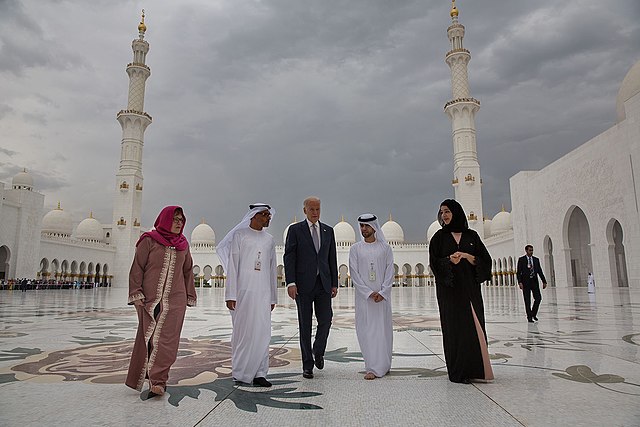
Event Recap: Previewing President Biden’s Middle East Trip
On July 12, The American Security Project hosted an event, “Previewing President Biden’s Middle East Trip.” ASP adjunct fellow and founder and CEO of Gulf State Analysis Giorgio Cafiero moderated a conversation between Linda Robinson, director of the Center for Middle East Public Policy and senior policy researcher at RAND Corporation, and Steven A. Cook, a senior fellow for Middle East and Africa Studies at the Council on Foreign Relations. The panelists discussed President Biden’s visit to Israel, the West Bank, and Saudi Arabia.
Cafiero first questioned Cook on his recent Los Angeles Times article, “Why is Biden’s Middle East Trip Even Necessary?” Cook stated that Biden’s trip could be replaced with a “10-minute phone call.” Nevertheless, the administration believes it is vital to reaffirm its commitment to Israeli security and the region despite war in Europe. The President will also visit Bethlehem and meet Palestinian leader Mahmoud Abbas, where he will express his support for a two-state solution, but those commitments will have “little credibility” given years of inaction, according to Cook.
Cafiero then turned to Robinson, who began by addressing the fact that Biden’s controversial visit to Saudi Arabia is “clearly an awkward moment” and that the administration is seeking to “recalibrate” not “rupture” U.S.- Saudi relations. Robinson then responded to Cook’s belief that Biden’s trip was unnecessary, highlighting areas of strategic opportunity for Biden, such as expanding the Gulf Cooperation Council (GCC) to include Iraq, Egypt, and Jordan, collective security needs in the face of Iran, enhancing normalization efforts and overhauling security to include food, water, energy, and tourism.
Regarding normalization efforts between Arab states and Israel, Cook noted that he expects Saudi Arabia to “make a public gesture towards normalization” and emphasized the importance of the President’s flight plan, an unprecedented direct flight from Tel Aviv to Jeddah. He cautioned, however, that “the Biden administration is not going to get much more than what they’ve got so far” from the Saudis. Robinson agreed with Cook’s expectations for deliverables but turned towards opportunities for the administration to “obtain human rights actions and commitments” and stated that Biden should demand Saudi responsibility for the murder of Khashoggi.
The conversation then shifted to discussions surrounding the Joint Comprehensive Plan of Action (JCPOA) and how the JCPOA will impact U.S. relations with other GCC countries. Robinson turned first to Saudi Arabia and warned that if they decide Iran is at a “nuclear threshold,” they will pursue their own nuclear path. Regarding Israel, Robinson warned that if Israeli actions similarly continued to ramp up, it could have profound destabilizing effects.
The panel ended with Cafiero asking Cook and Robinson what they would say to President Biden ahead of his Middle East trip. Cook would advise Biden to “turn around” and abandon the trip. He cautioned that these statements are not indicative of a belief that the U.S. should “withdraw” from the Middle East but that the U.S. should not become overly ambitious—an issue he explores in detail in his forthcoming book, The End Of Ambition: America’s Past, Present, and Future in the Middle East. Robinson disagreed with Cook, highlighting the trip’s important symbolism for reaffirming U.S. commitment. Robinson concluded on a more optimistic note than Cook, stating that Biden’s trip is an opportunity for the U.S. to aid in creating a “broad view of security” that includes climate change and water scarcity issues, both “drivers of conflict.”





